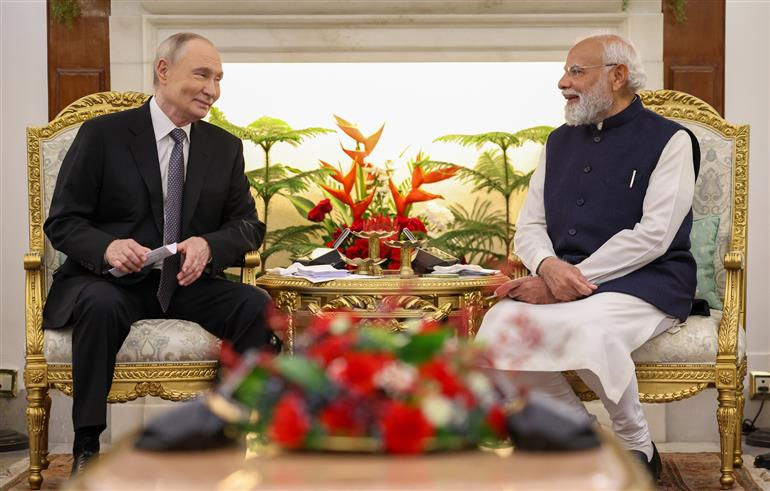Global Wars & India’s Acquisition Conundrum: Faster Indigenisation the Answer
- rkbhonsle
- Oct 13, 2023
- 3 min read

With at least two conflicts which are ongoing involving India’s main foreign military suppliers Ukraine and Israel/Hamas [Russia and Israel respectively] and a third being prepared for Taiwan [involving the United States], India’s acquisition conundrum is expected to increase.
While the National Democratic Alliance (NDA) government led by Prime Minister Narendra Modi has given a major push towards indigenization proclaiming the Atma Nirbhar Bharat in Defence in 2021 coinciding with COVID 19 supply chain disruptions, dependency on foreign suppliers for critical defence supplies including major platforms and key items such as aero engines continue.
Amongst India’s major foreign suppliers are Russia, Israel, the United States and France. While Russia and Israel are directly engaged in a war, the United States is committed to support forces engaged in these plus Taiwan.
Thus, in effect U.S. defence industry’s commitment to support Israel in the immediate term given the Hamas multi pronged threat, Ukraine at least till 2025-26 that is the estimated time the war my extend as per Ukrainian intelligence and Taiwan which is expected to be a perennial concern denotes that India may fall in the lower priority.
France is also likely to be committed to support Ukraine and even Israel, though this would not be in terms of bulk as the United States.
While the impact of drawdown in Russian defence supplies in real terms is known only to the services.m Apart from a brief mention by an Indian Air Force representative to the parliamentary committee on defence hearings where concerned were expected, no open source information of the status is evident. What is however known is that Russian supply of S 400 Air and Missile Defence System and Frigates to the Indian Air Force and Navy respectively have been delayed with no clear time lines.
Israel another major supplier may face similar challenges given mobilization of 300,000 reserves. Many of the reservists who reported for duty on call up found that they lacked the basic arms and equipment such as rifles and bullet proof jackets.
Israel Prime Minister Benjamin Netanyahu has announced plans for a ground invasion of Gaza, this is expected to be a major operational enterprise which may extend into years and possibly also involve other countries who may be willing to support the Hamas providing it arms and munitions support. In such a scenario Israel military commitment is expected to increase manifold drawing attention away from commitments made for India.
In such a scenario which can be extended over at least half a decade or so, India needs to increase practical guarantees to indigenization undertaking a number of steps.
DRDO projects such as drones and UAVs in particular, the Advanced Towed Artillery Gun System, various marks of the Light Combat Aircraft, the Advanced Medium Combat Aircraft (AMCA), the fight component of Indian Navy’s flotilla need to be taken to the logical conclusion. Additional funding and deployment of external human resources where necessary will have to be undertaken on priority.
Production capacities of the Defence Public Sector Undertakings (DPSUs) and the seven newly formed DPSUs under the Directorate of Ordnance (Coordination and Services) [erstwhile Ordnance Factories Board or OFB] have to be upgraded and enhanced.
Energise the private defence industry wherein there are committed stakeholders who have over the years undertaken considerable intrinsic investment to raise infrastructure for defence manufacturing by hand holding and providing resources for R & D as well as development and production included infrastructure. There would be some requirement of reviewing regulations which may have to be addressed.
The Ministry of Defence focus on defence exports may be deprioritized to focus on equipping Indian armed forces as a priority.
The Armed Forces need to accelerate major projects such as the Future Infantry Combat Vehicle and Future Ready Combat Vehicle for the Indian Army on priority by deploying dedicated project teams to achieve time bound results.
All this will require coordination by various arms of the Ministry of Defence supervised by the Defence Secretary – who as per Rules of Business is responsible for defence of India. The newly formed Department of Military under the Chief of Defence Staff will also have a major role to play. The Department of Defence production needs to synergise the public and private defence production system towards achieving time-bound outcomes.
The writing is now on the wall – India’s foreign defence suppliers are unlikely to meet the countries requirements for some time to come, alternatives in terms of indigenization may thus have to be considered on a fast track basis going beyond tokenism.



Comments